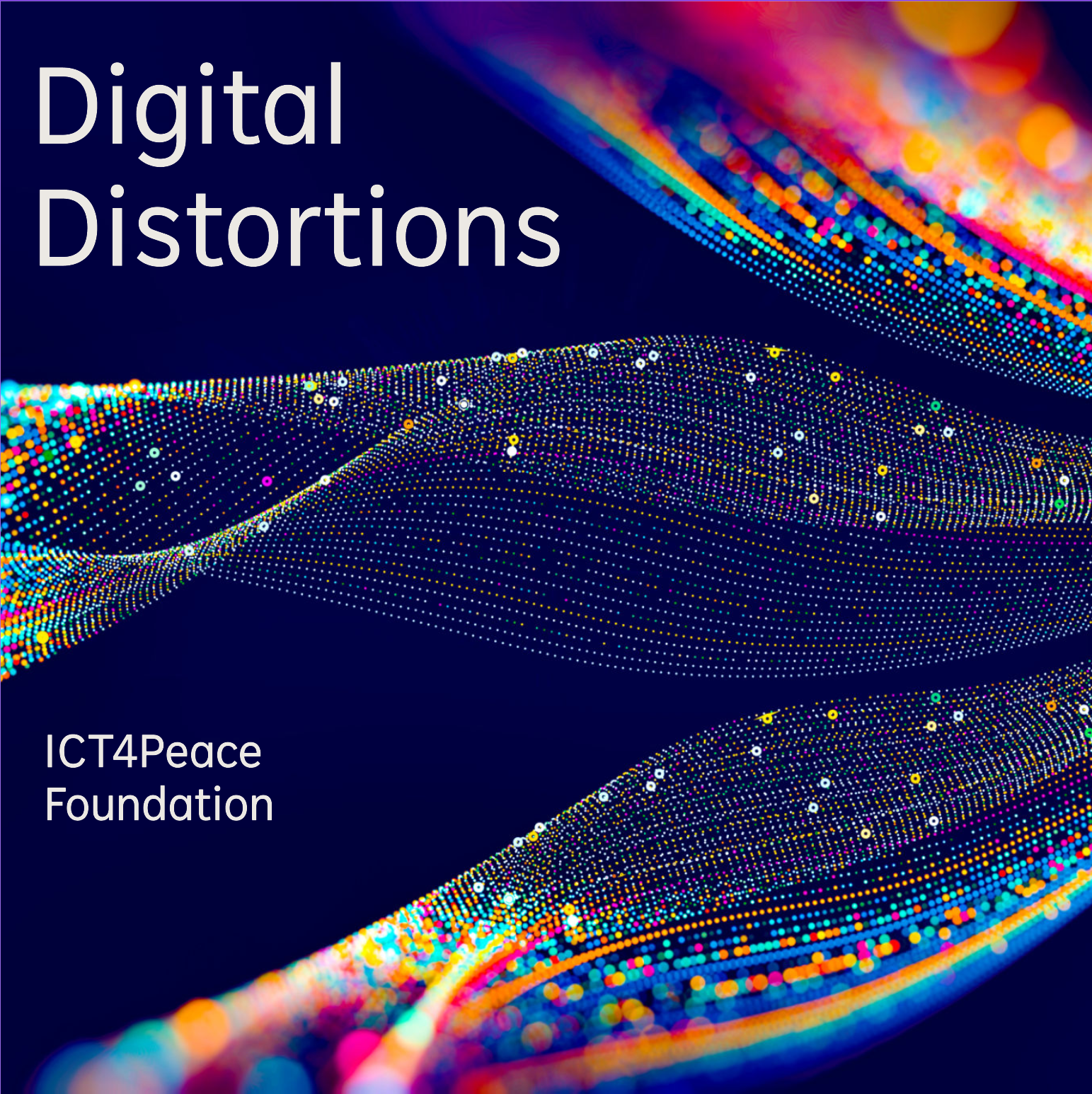The ICT4Peace Foundation is delighted to release the first episode of Digital Distortions, a podcast series looking at the role, reach, and relevance of disinformation, and truth decay in contemporary democracies, hosted by the Foundation’s Special Advisor Dr Sanjana Hattotuwa, and supported by the Daniel Gablinger Foundation.
This podcast features an in-depth converastion with veteran open source intelligence expert Eoghan Sweeney. Sweeney, and Hattotuwa explore the dramatic changes that have unfolded in the online information landscape over the past decade. Their conversation comes in the aftermath of the outbreak of war between Israel and Hamas that has resulted in unprecedented volumes of disinformation flooding social media channels.
Sweeney shares insights from his over 15 years of experience investigating content and verifying sources to battle deception. He traces the evolution of techniques like fact checking, while also warning of excessive faith being placed in these approaches alone to combat false narratives. Both speakers grapple with the extreme, affect-charged polarisation propagated via social platforms in conflict situations and the difficulty of establishing truth. Looking ahead, concerns get raised about the potential for artificial intelligence like generative text models to manufacture fake accounts, documents, and multimedia at staggering scales. With human creators already overmatched, such technologies risk further confusing and manipulating information consumers. Sweeney urges societies to prioritise awareness, media literacy efforts, and teaching healthy skepticism. The podcast also examines the crossroads where information technology, mass deception, and human psychology collide. Based on this, Sweeney highlights grave threats but also pathways to hope if ordinary citizens exercise discernment and if democracies invest in knowledge over propaganda.
Issues, and themes covered in the conversation between Sweeney, and Hattotuwa include,
- The evolution of OSINT (open source intelligence) and how the definition and scope has changed over time. There is discussion of how OSINT has gone from naively finding information online to now having to actively defend against disinformation.
- The challenges of fact checking and whether it can actually change minds, with skepticism expressed about its ultimate effectiveness.
- Polarisation around events like the Israel-Hamas conflict in October 2023, and the lack of empathy or ability to see different perspectives. The interviewees discuss how social media tends to amplify more extreme polarised voices.
- The differences in how events are covered and portrayed on Israeli vs Palestinian/Arab media outlets, showing stark contrasts.
- Social media algorithms and architecture that tends to promote controversial extremist content and increase polarisation. Especially issues with the changes being made on platforms like Twitter.
- The difficulty of ascertaining truth and verifying information in complex conflict situations with online disinformation at scale, using the hospital bombing on October 7th as an example that challenged standard verification methods.
- Ways for ordinary citizens to critically assess information sources and narratives on social media. Emphasis on slowing down, seeking quality sources, and avoiding getting caught up in high-velocity viral content.
- The rise of AI generative tools like GPT and the new dangers posed in generating plausible but false information and summaries that propagate falsehoods while appearing authoritative.
- The need for greater public awareness, media literacy, and skepticism when consuming information in light of these AI developments. But also some optimism that human ingenuity and oversight can keep pace.
Listen to it on SoundCloud and subscribe to new episodes on Spotify.

